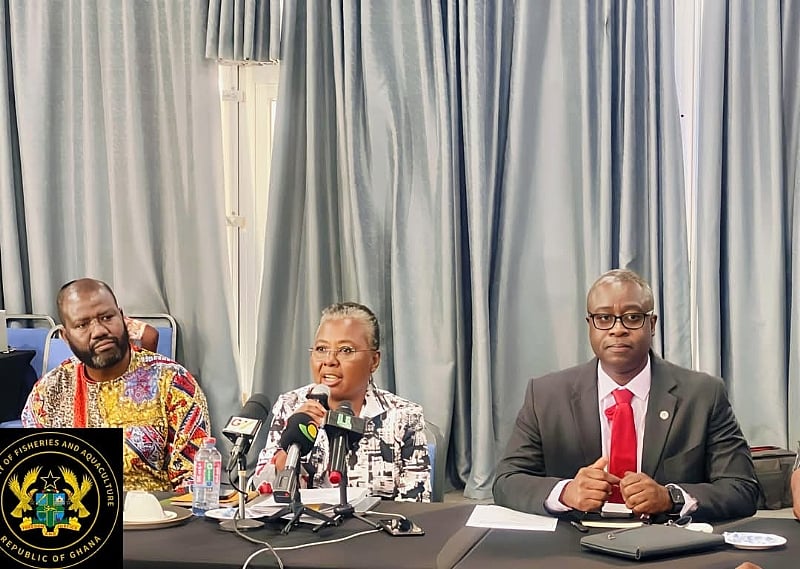The Ghanaian fishing industry, a cornerstone of the national economy and a vital source of protein for the population, is on the cusp of transformative legislation aimed at addressing illegal, unreported, and unregulated (IUU) fishing practices. For the past five years, Ghana has operated under a European Union (EU) yellow card for these practices, a warning that jeopardizes the country’s lucrative seafood exports to the EU market. To avert the catastrophic consequences of a potential red card, which would impose a complete ban on these exports, the Ministry of Fisheries and Aquaculture is spearheading the development of a comprehensive Fisheries and Aquaculture Bill. This bill promises to revolutionize the sector by fostering sustainable practices, bolstering governance, and enhancing resilience, ultimately promoting Ghana as a leader in the blue economy. The bill’s importance is underscored by the sector’s substantial economic contributions, including providing 60% of Ghana’s animal protein and supporting nearly 3 million jobs.
The stakeholder consultative meeting held in Accra served as a crucial platform for collaborative engagement, aligning the bill’s provisions with the sector’s revised vision: “a sustainable, well-governed, and resilient fisheries and aquaculture sector driven by equity, innovation, and strategic investment.” Minister Emelia Arthur emphasized the urgency of the situation, stressing that the bill’s passage is not merely a legislative procedure but a critical necessity for safeguarding the industry’s future. She highlighted the potential for significant economic and social disruption if Ghana fails to address the EU’s concerns, urging stakeholders to recognize the gravity of a potential red card. The Minister expressed confidence that the bill’s enactment will allow Ghana to demonstrate its commitment to sustainable fishing practices at the forthcoming United Nations Oceans Conference.
The bill’s development has been a meticulous and inclusive process, incorporating expertise from various sources, including an independent review by a Ghanaian fisheries law professor based in Australia. This comprehensive approach aims to ensure the bill’s robustness and alignment with international best practices. The final recommendations from this review will inform the parliamentary approval process, where the bill is expected to undergo thorough clause-by-clause scrutiny. This rigorous examination further demonstrates Ghana’s commitment to addressing the issues raised by the EU and ensuring long-term sustainability of its fishing industry. The involvement of international organizations like the FAO and local experts reinforces the collaborative nature of the bill’s development.
Dr. Godfred Seidu Jasaw, Chairman of the Parliamentary Select Committee on Food, Agriculture, and Cocoa Affairs, emphasized the significance of stakeholder participation in shaping the bill’s final form. He recognized the importance of finding solutions that balance the need for economic development with the imperative of preserving this vital resource for future generations. The consultative meeting provided a platform for stakeholders to voice their concerns and contribute to a legal framework that reflects the needs and interests of all parties involved. This collaborative approach aims to foster a sense of shared ownership and responsibility for the future of Ghana’s fisheries.
The Parliamentary Select Committee has already undertaken a rigorous review of the draft bill following its approval by the Cabinet. While substantial progress has been made, the stakeholder consultative meeting served as a vital opportunity to validate the proposed provisions and ensure their practical applicability. Dr. Jasaw encouraged open and frank discussion, emphasizing the democratic nature of the lawmaking process and the importance of well-reasoned arguments in shaping the final legislation. This transparent and participatory approach demonstrates a commitment to creating a legal framework that is both robust and widely accepted.
The collaborative spirit and the comprehensive approach to drafting the Fisheries and Aquaculture Bill signify a crucial step towards securing the future of Ghana’s fishing industry. Minister Arthur’s hands-on involvement, coupled with the Parliamentary Select Committee’s diligent review and the active participation of stakeholders, underscores the collective commitment to addressing the EU yellow card and ushering in a new era of sustainable and responsible fishing practices. The revised vision for the sector, focusing on sustainability, robust governance, and resilience, reflects Ghana’s ambition to become a leader in the blue economy. This strategic approach promises not only to preserve the industry’s vital role in the national economy but also to ensure its long-term viability for generations to come.













